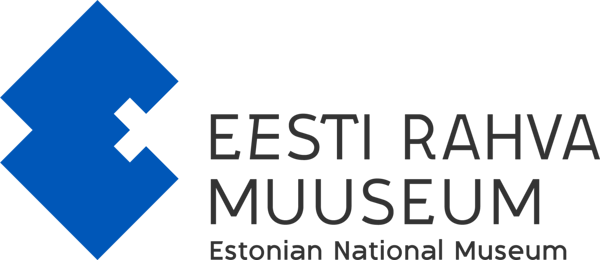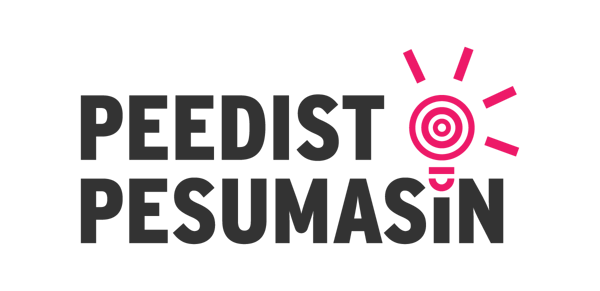Sustainability in Practice: DIY Repair, Reuse and Innovation
30 October–2 November 2024
Venue: Estonian National Museum, Muuseumi tee 2, Tartu, Estonia
This conference aims to rethink ecological sustainability through an empirical perspective on sustainable do it yourself (DIY) practices, solutions and lifestyles shaped by culture, heritage and history. The conference proposes to consider the potential of various sustainable consumer behaviour in the past and present, instead of perceiving sustainability only as an economic and political endeavour in terms of green transition and sustainable development.
The focus on DIY repair, reuse and vernacular innovation seeks to examine sustainability in the context of everyday life and domestic and community settings. By bringing together ethnological, anthropological, sociological and craft studies perspectives, and the role of activism, the conference aims to show and discuss contemporary, traditional and vernacular sustainable practices.
The repair, reuse and repurpose of diverse commodities and materials, and vernacular innovation, are today increasingly perceived as part of sustainable consumption culture. However, the role and meaning of these practices have changed over time, depending on social, economic and political environments. Facing the global climate crisis, this conference seeks lessons from the past and present in order to develop more sustainable and resilient ways of life.
The conference will discuss various topics, such as DIY repair and maintenance, domestic reuse and repurpose, vernacular innovation and invention, sustainable and resilient lifestyles and communities, heritage and applied heritage, forms of activism, and the role of museums and memory institutions in maintaining and promoting sustainability.
30 October–2 November 2024
Venue: Estonian National Museum, Muuseumi tee 2, Tartu, Estonia
This conference aims to rethink ecological sustainability through an empirical perspective on sustainable do it yourself (DIY) practices, solutions and lifestyles shaped by culture, heritage and history. The conference proposes to consider the potential of various sustainable consumer behaviour in the past and present, instead of perceiving sustainability only as an economic and political endeavour in terms of green transition and sustainable development.
The focus on DIY repair, reuse and vernacular innovation seeks to examine sustainability in the context of everyday life and domestic and community settings. By bringing together ethnological, anthropological, sociological and craft studies perspectives, and the role of activism, the conference aims to show and discuss contemporary, traditional and vernacular sustainable practices.
The repair, reuse and repurpose of diverse commodities and materials, and vernacular innovation, are today increasingly perceived as part of sustainable consumption culture. However, the role and meaning of these practices have changed over time, depending on social, economic and political environments. Facing the global climate crisis, this conference seeks lessons from the past and present in order to develop more sustainable and resilient ways of life.
The conference will discuss various topics, such as DIY repair and maintenance, domestic reuse and repurpose, vernacular innovation and invention, sustainable and resilient lifestyles and communities, heritage and applied heritage, forms of activism, and the role of museums and memory institutions in maintaining and promoting sustainability.
Keynote presentations are publicly available on the Estonian National Museum`s YouTube channel:
- Steven J. Jackson (Cornell University), Broken World Thinking: Maintenance, Repair, Hope - https://www.youtube.com/watch?v=DHa8CCJHCS0&t=163s
- Tomás Errázuriz (Universidad Andrés Bello) and Ricardo Greene (Universidad de las Américas), Care, Adapt, Survive: Caring for Things - https://www.youtube.com/watch?v=-NBK4hkQBfY
The main venue of the conference will be Estonian National Museum in the city of Tartu, Estonia.
The conference is being organised by the Estonian National Museum in collaboration with the Washing Machine Made of Beetroot joint exhibition project, curated by the Estonian Road Museum, the Estonian Agricultural Museum, and the Tartu City Museum. The conference programme will involve organised tours to the exhibition on invention, ingenuity, recycling and DIY mentality, and visits to various public repair workshops in Tartu.
The conference and the exhibition are part of and supported by the European Capital of Culture Tartu 2024 programme. The Tartu 2024 artistic concept is Arts of Survival.
Conference committee:
Tenno Teidearu (Estonian National Museum), head of the committee
Lauri Mei, project manager of the Washing Machine Made of Beetroot joint exhibition
Paavo Kroon (Estonian Road Museum)
Madle Uibo (Tartu City Museum)
Ilze Salnaja-Värv (Estonian Agricultural Museum)
Piibe Nõmm, conference assistant
Conference e-mail: sustainability@erm.ee
The conference is being organised by the Estonian National Museum in collaboration with the Washing Machine Made of Beetroot joint exhibition project, curated by the Estonian Road Museum, the Estonian Agricultural Museum, and the Tartu City Museum. The conference programme will involve organised tours to the exhibition on invention, ingenuity, recycling and DIY mentality, and visits to various public repair workshops in Tartu.
The conference and the exhibition are part of and supported by the European Capital of Culture Tartu 2024 programme. The Tartu 2024 artistic concept is Arts of Survival.
Conference committee:
Tenno Teidearu (Estonian National Museum), head of the committee
Lauri Mei, project manager of the Washing Machine Made of Beetroot joint exhibition
Paavo Kroon (Estonian Road Museum)
Madle Uibo (Tartu City Museum)
Ilze Salnaja-Värv (Estonian Agricultural Museum)
Piibe Nõmm, conference assistant
Conference e-mail: sustainability@erm.ee


